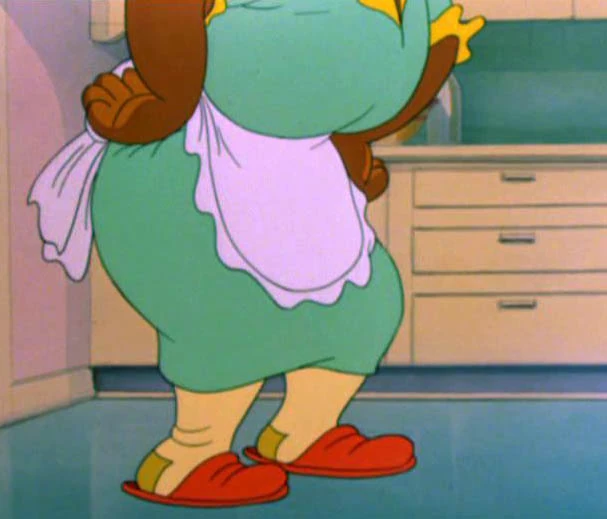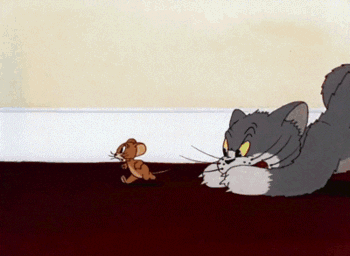A Year in Shorts Day 10: "Puss Gets the Boot"
As stated before on this blog, Tom and Jerry were the kings of the animated short in the 1940s. And while their debut short, Puss Gets the Boot, didn’t win them an Oscar, it certainly set a precedent (and a high bar) for them to follow.
Interestingly, Tom and Jerry weren't always Tom and Jerry. In their first outing together, Tom was called Jasper and Jerry may or may not have been named Jinx (they never name him on screen). There's a lot of early weirdness in the short, from the comparatively more realistic character designs to the relatively low stakes cat and mouse battle. The whole short climaxes with some broken dishes! Where are the graphic dismemberments, the firearms, the explosions?
Still, the seeds for what Tom and Jerry would become were there, and directors William Hanna, Joseph Barbera and Rudolf Isling would be able to build on and perfect the formula in the years to come. Apparently the studio wasn't too impressed with the short at first, but audiences loved it, and it's easy to see why. It has everything you need in a hit cartoon- good animation, slapstick comedy and a compelling conflict.
Oh, and of course, it also has an uncomfortable dash of racism. That's right folks, we get to talk about racism in cartoons two days in a row, aren't we lucky?
Voiced by actress and singer Lillian Randolph, the character of "Mammy Two Shoes" was featured in nineteen Tom and Jerry shorts released between 1940 and 1952. I'm willing to bet that a lot of you have no memory of this character, and there's a good reason for that- when the shorts were syndicated for television, Mammy was replaced with a new white character, voiced by June Foray.
Mammy Two Shoes was and is a rather controversial figure in the world of Tom and Jerry, as was her actress in real life. It is certainly undeniable that the character embodies a lot of negative stereotypes about the African-American community. Admittedly, the stereotyping isn't as bad in this short as it was in others, although that's hardly an excuse. But at the same time, this role and others like it did provide Lillian Randolph with work and a paycheck, and there's something almost perverse about cutting her out of the syndicated shorts to give the royalties to a white woman.
(I am operating under the assumption that voice artists in cartoons received royalties whenever their shorts aired on TV. I could be entirely wrong and would love to be corrected by anyone smarter than me!)
Ultimately, the issue surrounding the character of Mammy Two Shoes is thorny and complex, and I'm certainly not the person to try and untangle it. The sad truth is that a lot of classic comedies relied on crude stereotyping like this, and unlike animators editing a short for television, we can't just rotoscope over it. It's as much a part of the DNA of these shorts as the sight gags, and it's worth talking about.
Either way, Puss Gets the Boot didn't win the Oscar that year. Tom and Jerry's debut appearance was also nominated alongside Tex Avery's A Wild Hare, considered the official debut of Bugs Bunny... which also didn't win. No, they both lost Rudolf Isling's The Milky Way, which was certainly... a choice.
Not the right choice, but a choice nonetheless.
Keep up with the Oscar Baiting goodness here on Letterboxd!
Disclaimer: The Great Oscar Baiter is a non-profit blog. All images within are property of their respective owners and protected by Fair Use.





Comments
Post a Comment